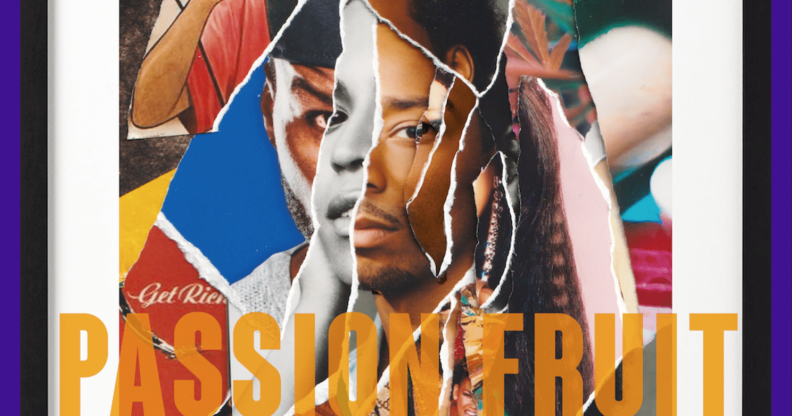Passion Fruit is a raw, vital coming of age story that explores growing up Black and gay in London

Passion Fruit follows the hero’s journey from boy to man. It’s “a story of coming of age in a world that seems to judge him for both his heritage and sexuality.”(The Glory)
“This isn’t a coming out story,” says Dior Clarke at the start of Passion Fruit. It’s much more.
Clarke’s semi-biographical play is the story of a young gay British-Jamaican man growing up on a North London council estate. It’s a story that certainly isn’t told often enough in the theatre and deserves to be seen by a wide audience.
Clarke takes us step by step through hero Romeo’s life. That includes school years, a traumatic family life, gang violence, internalised homophobia and shame, and eventually the hedonistic London gay scene.
It is, at heart, a fairly simple coming of age story, but it touches on important themes in a raw, honest way: the toxic masculinity widespread within some parts of the Black community; the dangers of the throw-caution-to-the-wind London gay scene and its associated drug use; the importance of family.
The latter is perhaps the strongest thread of the piece, as the events of the narrative all tie back to family. One particularly impassioned moment has Romeo describing his mother as a strong Black woman, despite the pain and hardship she’s endured. It’s a powerful moment that solidifies the bond between mother and son and proves that while nobody’s perfect and for some the odds are stacked against them, success is still possible.
That’s why Passion Fruit feels so urgent: a call to action of love and acceptance in a community that is too often discriminated against.
Together with dramaturg Stephanie Martin, Clarke has a wonderful way with bathos. Tragic and serious moments hang in the air and then are undercut by humour, so the narrative never pauses for long. And there is plenty of humour, both from the often dry script to Clarke’s sassy delivery. He’s an engaging storyteller and performs Romeo as a likeable hero despite his flaws.
Hayden Mampasi and Jessikah Wilson join the cast with some characterful impressions, showing great range. The play is often at its best during these scenes that break up the monologue, with director Melina Namdar ensuring great use of the theatre space among the audience.
A few moments feel slightly preachy, from an educational piece on HIV to the ending that hits the nail a little too bluntly on the head. However, they don’t detract from the whole. Passion Fruit is, at its core, a raw and impassioned piece with great potential.

